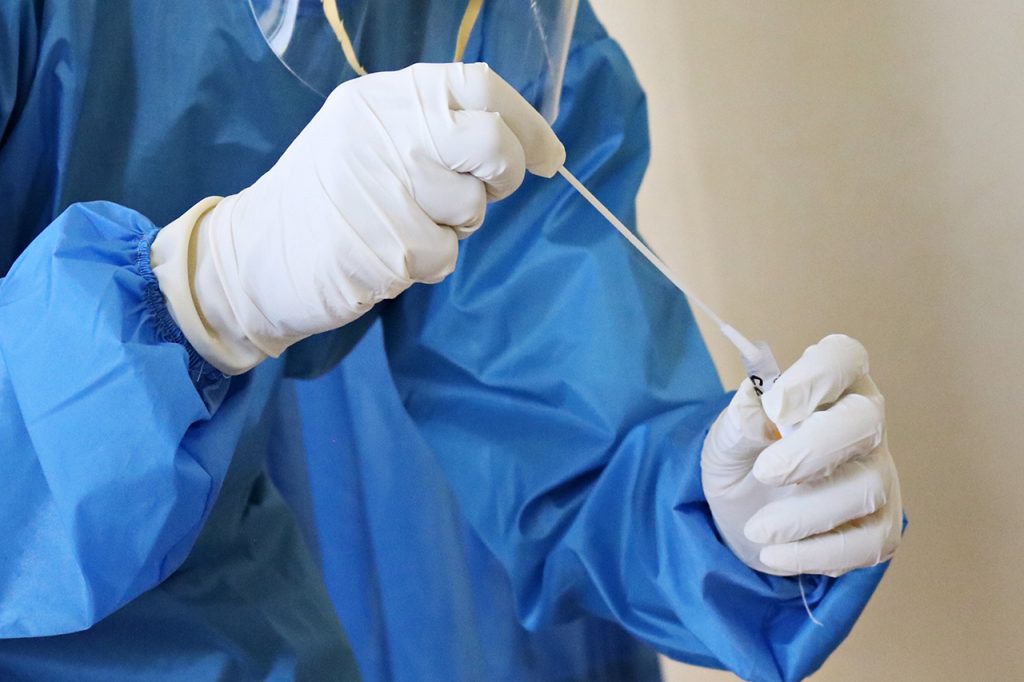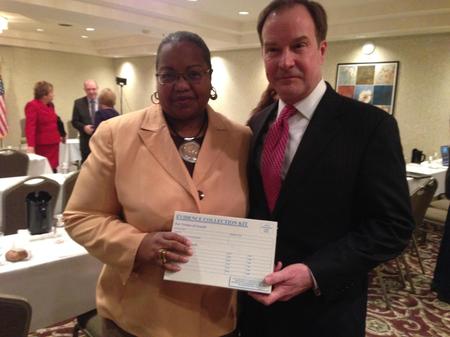Evidence from Massive Rape Kit Backlog Yields More Than 200 Convictions, Lasting Policy Changes
Prosecutors have been investigating and prosecuting cases after a review of 11,341 untested rape kits found in Detroit was completed in 2019.

In 2009, over 11,000 untested rape kits were discovered in a Detroit Police Department storage room. The discovered kits were backlogged between 1984 and 2009. This was a huge scandal that rocked the community and also raised national attention on untested kits that contain evidence collected after a person says they were sexually assaulted.
MichMash hosts Cheyna Roth and Jake Neher talk with BridgeDetroit’s Bryce Huffman about how this ordeal has changed state policy and law enforcement practices since 2009.
Subscribe to MichMash on iTunes, Spotify, Google Podcasts, NPR One or wherever you get your podcasts.
Since 2009, Wayne County Prosecutor Kym Worthy has been leading an effort to process those thousands of kits and she’s helped change state law to ensure that those types of kits are analyzed sooner.
Now, more than a decade later, all 11,341 kits have been DNA tested and reviewed by scientists from private labs and reviewed by the Michigan State Police. Since 2019, the Wayne County Prosecutor’s Office has been investigating and prosecuting these cases. The evidence has resulted in 224 convictions, with 4,122 investigations completed, nearly 200 being actively investigated and 100 awaiting investigation, as of Sept. 7. But this is a problem that has significantly affected Detroit, the state and the country.
“A lot of people who were in positions of power [with the city and police department] didn’t feel that these kits were a priority with stressed resources,” Huffman says, explaining how the buildup happened over decades. “That’s probably the answer you’ll get from everyone who had any sort of say. It’s, ‘Well, we didn’t have the resources, you know, we had other issues to worry about.’”
“They had a culture of not listening to victims, not taking them seriously, not viewing sexual abuse as important as it is and as serious as it is.” –Bryce Huffman, BridgeDetroit
Huffman says when the kits were first discovered, there was a lot of embarrassment for the city and police department, and officials immediately wanted to correct the mistake.
“Now, it’s a bit different,” Huffman says. “Obviously, we’ve had a big cultural change, people are really starting to call out things like rape culture, and patterns that lead to more people being abused.”
“So now, the reaction the community seems to be having now is, you know, they’re happy that the kits are being tested,” he says. “They’re happy that it’s led to hundreds of convictions. But they’re still kind of skeptical of the people who let this happen. They are obviously like, don’t let these types of things happen again.”
Things have changed since 2009, especially given the murder of George Floyd and the reckoning with law enforcement. Huffman said the Detroit Police Department was “absolutely part of the problem.”

“They had a culture of not listening to victims, not taking them seriously, not viewing sexual abuse as important as it is and as serious as it is,” he says.
But the department is making changes, Huffman says. They now have social workers available for victims of assault and they’re taking kit testing seriously. And the impact of having all the kits tested for new cases has had far-reaching consequences.
“The DNA from these [rape kits found in 2009] has touched investigations in 40 states,” Huffman says. “It’s not just Detroit issue alone. It’s not just a Michigan, or Wayne County issue. It’s really a nationwide issue.”
The backlog and the efforts to clear it have resulted in significant policy changes as well.
A 2014 Michigan law now requires police to send rape kits for testing within 14 days of receiving them. Huffman says the saga has also brought nationwide attention to the ways law enforcement has failed to bring about justice for rape and sexual assault survivors.
Correction: This story has been updated to clarify the testing and review process of the sexual assault kits.
More from MichMash:
Officials Look for Ways to Fix Michigan’s Juvenile Justice System
Take Poor Michigan Assessment Results With a Grain of Salt, Education Advocate Says
What We’re Learning As Michigan Redistricting Commission’s First Political Maps Take Shape
Trusted, accurate, up-to-date.
WDET strives to make our journalism accessible to everyone. As a public media institution, we maintain our journalistic integrity through independent support from readers like you. If you value WDET as your source of news, music and conversation, please make a gift today.
